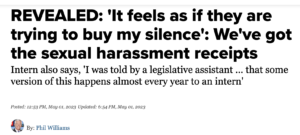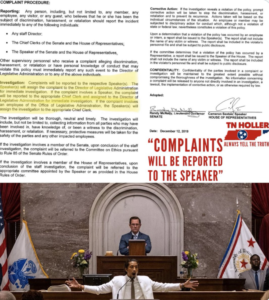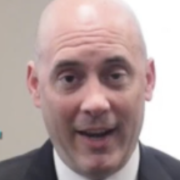FAMILY VALUES? Bulso Fights for 1st Cousin Marriage 🤨
FAMILY VALUES?

Well, you would be wrong. Not in Tennessee. Not under this Republican supermajority.
Darren Jernigan’s bill passed with full support in committee. Even Gino Bulso, who for some reason thought it wise to admit his grandparents were first cousins, supported it.
But something happened between committee and the floor that changed Bulso’s mind. Perhaps a fond family memory? Whatever it was, Bulso suddenly decided the bill was a bad idea, and fought hard to kill it on the house floor, even using law legalizing same-sex marriage, which he opposes, as an argument to keep first cousin marriage legal.
CLEMMONS did well to keep a straight face as he said: “Mr. Speaker, I move to table the amendment that would allow 1st cousins to marry.” ![]()

It was quite a sight to behold. Bulso’s colleagues struggled to keep straight faces. Parkinson failed, telling us “That was ballsy… Bulso’s gonna break the Internet again.”

The lobbyists in the rotunda were seized with fits of laughter watching Bulso try to make his case.
Eventually it passed with an overwhelming majority from both parties, however Monty Fritts joined Bulso in opposition, and 9 other Republicans decided to abstain.

The headlines Bulso’s crusade to save first cousin marriage is generating are frankly just amazing.

Needless to say, it will be an awkward Thanksgiving at the Bulso house this year. But congrats to Bulso & the TN house GOp on making it into Newsweek! ![]()

What a week. Session is almost over, but our work will continue. Please consider helping us holler about it all by chipping in monthly. (or on SQUARE)

LOOKING FOR AN ATTORNEY? HOLLER AT ABBY RUBENFELD. FAMILY LAW, CIVIL RIGHTS, EMPLOYMENT DISCRIMINATION, PERSONAL INJURY, WILLS, DUI… ABBY STRONGLY BELIEVES EVERYONE SHOULD BE PROTECTED REGARDLESS OF SOCIOECONOMIC STATUS. SHE ROCKS.

Interested in sponsoring? Email:[email protected]
TODAY’S HOLLER:

SENATOR LAMAR: ![]() “Teachers don’t even want this. This bill is dangerous… look at that gallery. Those mothers are asking you not to do this.” With a baby in her arms. Powerful. But every Senate Republican voted yes anyway, as troopers dragged out the moms above.
“Teachers don’t even want this. This bill is dangerous… look at that gallery. Those mothers are asking you not to do this.” With a baby in her arms. Powerful. But every Senate Republican voted yes anyway, as troopers dragged out the moms above.

Williamson County School Board Member ![]()

YARBRO: “Shame on us, Mister Speaker.” The arming teachers bill passed the Senate on party lines with Republican support, as Mcnally had parents removed from the balcony and Yarbro & the Dems said it isn’t what most Tennesseans want to keep kids safe.

Former Williamson County School Board Chair ![]()

Covenant Dad on the arming teachers bill![]()

It’s not what people want

![]() JONES: “This stifles speech. People here are upset young people are asking deeper Q’s than your generation. I hope one day they replace you all.” – Justin Jones opposed Ragan’s bill— pointing out he grew up in “divisive” segregated schools, and the truth must be taught.
JONES: “This stifles speech. People here are upset young people are asking deeper Q’s than your generation. I hope one day they replace you all.” – Justin Jones opposed Ragan’s bill— pointing out he grew up in “divisive” segregated schools, and the truth must be taught.

Tennessee headlines just from today

“NUTS.” — that’s how Dems caucus chair John Ray Clemmons responded to this bill letting 18 year olds open carry assault weapons![]() Not only are Tennessee Republicans not listening to the people in the wake of Covenant, they’re going the other way.
Not only are Tennessee Republicans not listening to the people in the wake of Covenant, they’re going the other way.

“VOTE THEM OUT!” CHAOS ends committee after Lamberth & Farmer conspire to refuse a roll call vote on the Fritts bill allowing open carry of assault weapons & lowering the age to 18. Republicans making up rules as they go. Not democracy.

Q: “Do we need 18 year olds walking around open carrying assault weapons?” FARMER (R): “Probably not.” In a moment of honesty the Civil Justice chair admits his concerns about the bill he voted for— but doesn’t regret ducking the voice vote that led to the eruption.

POWELL: “I’m at a loss— we’re putting the worship of the gun ahead of the love of people.” Jason Powell opposed the Fritts bill for open carry of assault weapons as young as 18. Lamberth ![]() made Farmer duck
made Farmer duck ![]() a roll call vote. The audience erupted. Senate Republicans then passed an arming teachers bill.
a roll call vote. The audience erupted. Senate Republicans then passed an arming teachers bill.

TN MOMS: “Elections are coming up, girls… democracy in Tennessee is on life support.” TN Moms react to an emotional committee ending abruptly when Farmer & Lamberth ducked a roll call vote on Fritts’ open carry of assault weapons by 18 year olds bill.

To recap…

HEY GINO: “Is the ‘Baby Olivia’ anti-abortion video you just forced into Tennessee schools indoctrination?”
Sponsors Bulso & Bowling say no — Senator Heidi Campbell disagrees, saying it’s part of a theocratic Christian Nationalist agenda taking hold in Tennessee (+ ![]() )
)

NASHVILLE SCENE: “Local OB/GYN says the most egregious issue in the video is how it measures the timeline of pregnancy… They’re trying to ‘teach’ human development but they’re just teaching false embryology.”

What it actually looks like. Little different than the baby Olivia video.

TN PARENTS: “Parents’ rights should be parents’ rights for all parents — the @TNGOP supermajority are hypocrites.” TN parents call out the hypocrisy of Faison’s “Parents Bill of Rights” as Republicans force kids to watch anti-abortion videos, attack trans kids etc.

CHALKBEAT hears what we’re hearing – Lee’s vouchers are hanging by a thread: “Lee’s push to create a statewide school voucher system is running out of time as Republican lawmakers work to reconcile significantly different proposals.” – KEEP CALLING.

And on and on ![]()

HOMESCHOOLERS AGAINST VOUCHERS: “Taxpayer![]() should not fund private education… (vouchers) are not conservative. We consider it educational welfare.” “For Your Children” ministry homeschoolers “fundamentally oppose” @GovBillLee’s voucher scam and the inevitable strings that come with vouchers.
should not fund private education… (vouchers) are not conservative. We consider it educational welfare.” “For Your Children” ministry homeschoolers “fundamentally oppose” @GovBillLee’s voucher scam and the inevitable strings that come with vouchers.

DEBERRY PAID OFF: “Are you familiar with the segregationist history of vouchers? How much is @govbilllee paying you?” After being booted from the Democratic Party, ex Rep. John Deberry now helps Lee push his voucher scam — and Lee gives him ~$18,000/month in taxpayer dollars for it.![]()

UNION BUSTIN’ GUV: Anti-Union is anti-worker, Gov Bill Lee. You’re the one making the “big mistake”.

![]() MUST-WATCH: “I am fully unionized… my life changed… I have things I never thought I could.”
MUST-WATCH: “I am fully unionized… my life changed… I have things I never thought I could.”
As Gov Lee union busts in Nooga— HAYWOOD, TN folks have their lives changed by union work & Biden’s $9.2 BILLION Blue Oval investment.

“AN UNPRECEDENTED BILLION-DOLLAR CORPORATE TAX GIVEAWAY”: Dems sound the![]() as Republicans (+ Johnny Shaw) gleefully hand billions to corporations based on a nonexistent lawsuit— yet cry poverty over feeding kids in schools, expanding health care, etc
as Republicans (+ Johnny Shaw) gleefully hand billions to corporations based on a nonexistent lawsuit— yet cry poverty over feeding kids in schools, expanding health care, etc

SHAW: “Get out of my face!” Rep Johnny Shaw (D) loses it on us & calls for a trooper when we ask why he was the 1 Dem yes vote on an unnecessary billion-dollar corporate tax handout. (Also: the attack on the human rights commission, Sexton’s rules, badmouthed the Justins, etc)

SUING THE STATE: “We urge the court to use its authority to stop the suffering pregnant patients are enduring.” TN women denied abortion care are suing the state over its (no real exceptions) ban, for putting their lives in jeopardy. #ForcedBirthState

A NATIONAL ALARM: This week BLOOMBERG and THE GUARDIAN both sounded the alarm ![]() about Tennessee local outlets should have been sounding a long time ago. Either you’re calling it out or you’re helping to normalize it. There is no third option.
about Tennessee local outlets should have been sounding a long time ago. Either you’re calling it out or you’re helping to normalize it. There is no third option.

WATCH: “Be truthful, not neutral.” – Kanew holds a 1-man protest as The Holler is kept out of Speaker Sexton’s public press conference yet again, while the rest of local media again says nothing. Also denied access to the House floor, where the Dems held theirs.

LYIN LIZZETTE: The “Public Higher Education Fee Waiver” Lee’s TN Ed commissioner #LyinLizzette Reynolds signed, which very clearly says she committed perjury when she claimed to have been employed 6 months. In bold letters.

WARNER: “She needs to step aside… the damage is done.” Republican Rep. Todd Warner calls on unqualified commissioner Lizzette Reynolds to resign after she repeatedly lied to get free tuition (aka perjury). Lee’s pick has been a trainwreck.

CARTOONS OF THE DAY #ForcedBirthState #Eclipse


![]() Please consider chipping in monthly to support our hollering. (or on SQUARE & CASH APP: $TNHoller)
Please consider chipping in monthly to support our hollering. (or on SQUARE & CASH APP: $TNHoller) ![]() Get your holler hat here.
Get your holler hat here.


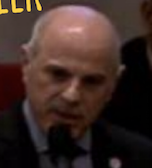



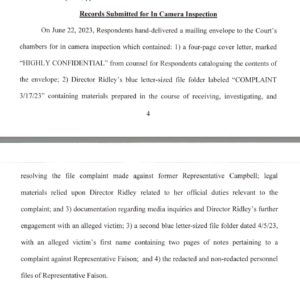
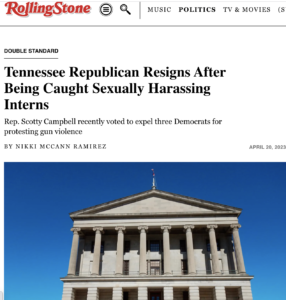
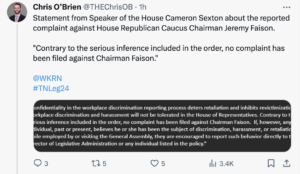
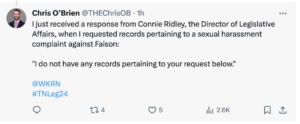

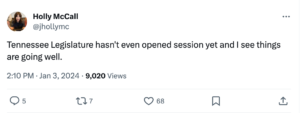


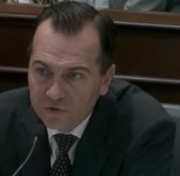






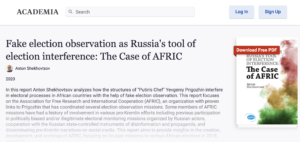







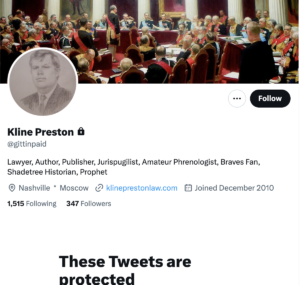


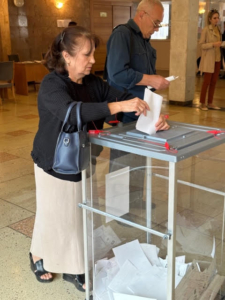



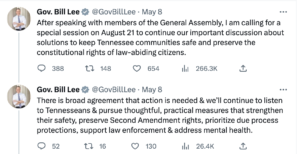
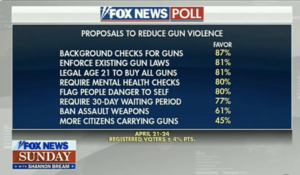





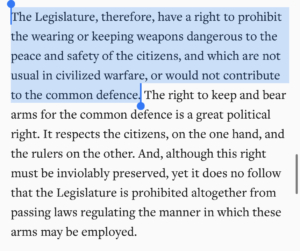
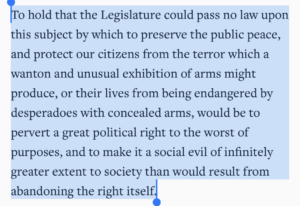
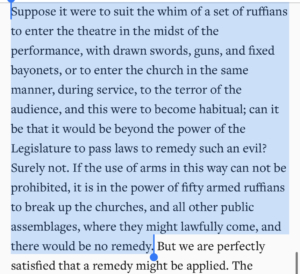
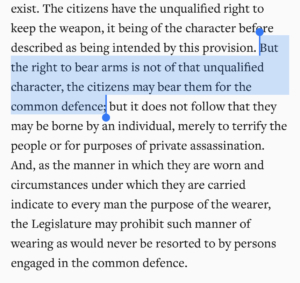
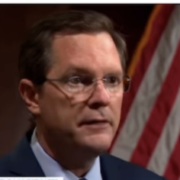

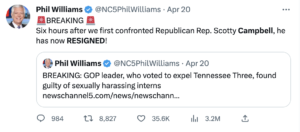
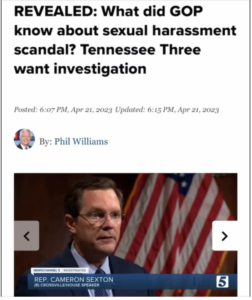 Even the intern herself said “it felt like they were trying to
Even the intern herself said “it felt like they were trying to 